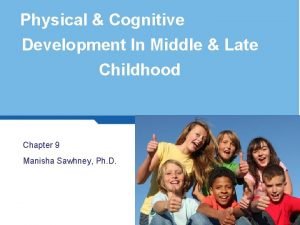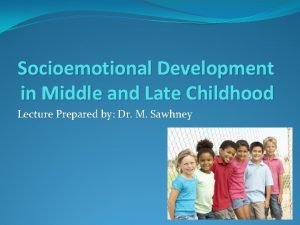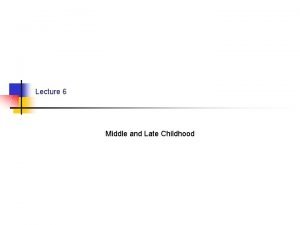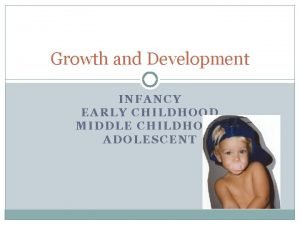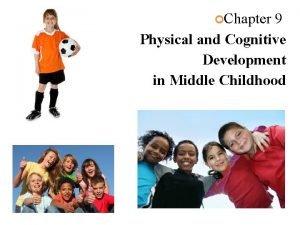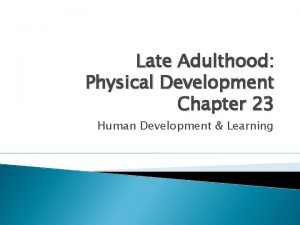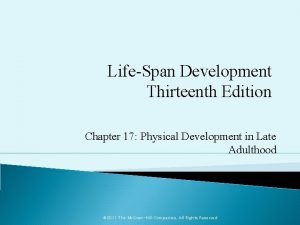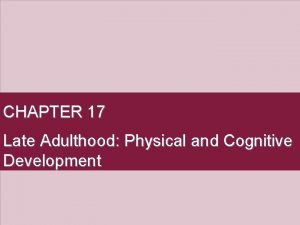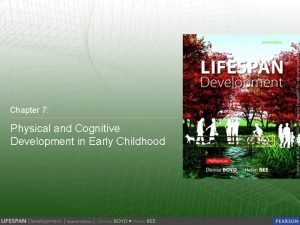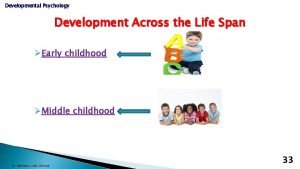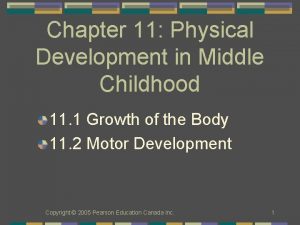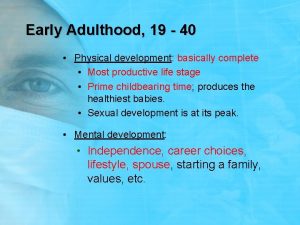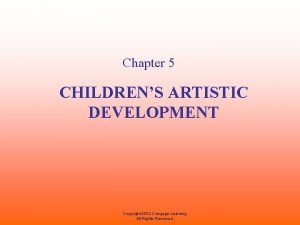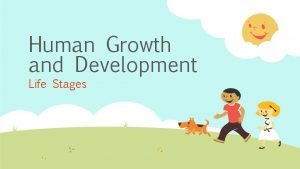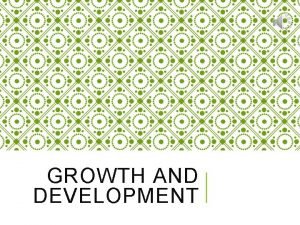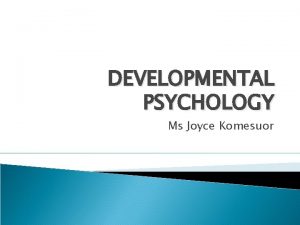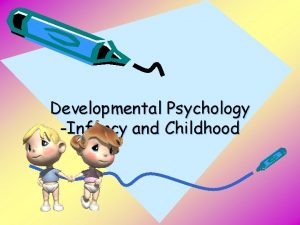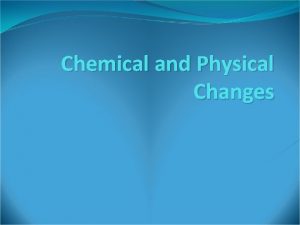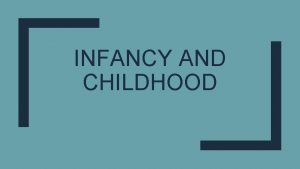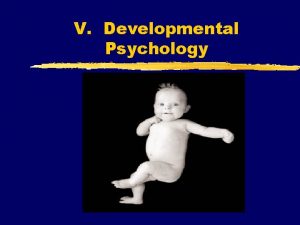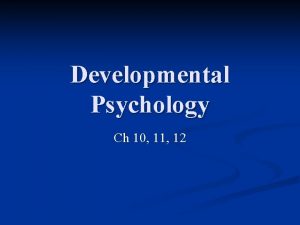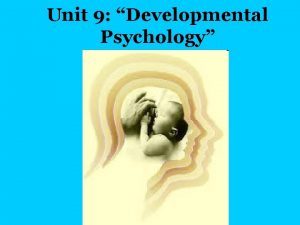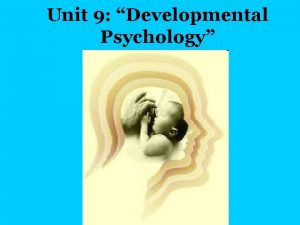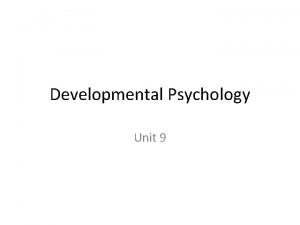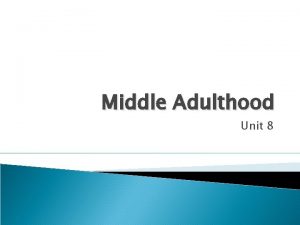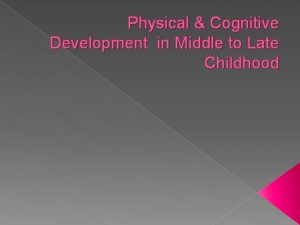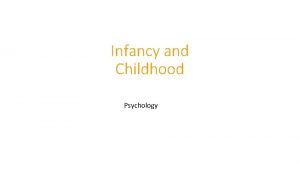Developmental Psychology Physical Changes in Middle Late Childhood


















- Slides: 18

Developmental Psychology Physical Changes in Middle / Late Childhood (Ages 7 – 12)

Physical Changes • Slow consistent growth – Average growth of – Weight gain of approx. pounds a year

Physical Changes – Motor Development • Childhood Illnesses – Cancer • Most prevalent form is – – Asthma

Physical Changes – Physical Activity • Childhood Obesity –

Physical Changes – The Brain • Total brain volume stabilizes – Changes in – • Thickness of the brain continues to grow/expand

Disabilities Present in Middle/Late Childhood • Learning Disabilities – •

• • – Asperger’s • School Reaction to Learning Disabilities

Brain Development • Memory – See an increase in long term memory • • Strategies: – – •

Brain Development • Thinking – – Creative Thinking • Intelligence – –

Intelligence • Sternberg’s – Analytic – – Practical

Intelligence • Gardner’s Eight Frames of Mind* – Verbal – – Spatial – – – Interpersonal – Intrapersonal –

Notes:

Intelligence • Influence of Environment

Influences on Intelligence • Early Interventions – Intelligence • • Culture Fair Tests

Intelligence Testing • Difficulties in creating Culture Fair Tests – Time Limits – – Experience with components of the test –

The Extremes of Intelligence • Mental Retardation – Mild – – Severe – • Retardation

The Extremes of Intelligence • – The existence of a exceptional skill (computational, drawing) in a person of limited mental ability

The Extremes of Intelligence • • Three characteristics of gifted children: – Precocity – –
 Middle and late childhood
Middle and late childhood Middle and late childhood
Middle and late childhood Late childhood cognitive development
Late childhood cognitive development Proximodistal development
Proximodistal development Middle and late childhood
Middle and late childhood Ros
Ros Physical development in late adulthood
Physical development in late adulthood Changes in late adulthood
Changes in late adulthood Physical changes during childhood
Physical changes during childhood Physical reaction
Physical reaction Developmental psychology meaning
Developmental psychology meaning Physical development in middle childhood
Physical development in middle childhood Physical development in middle childhood chapter 11
Physical development in middle childhood chapter 11 Physical development in middle childhood
Physical development in middle childhood Early adulthood stage
Early adulthood stage Middle adulthood physical changes
Middle adulthood physical changes Kellogg's artistic developmental stages
Kellogg's artistic developmental stages Most productive life stage
Most productive life stage Social development in late childhood
Social development in late childhood
